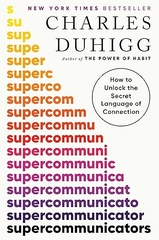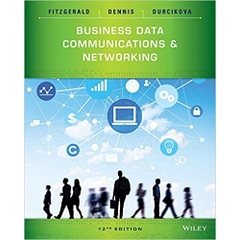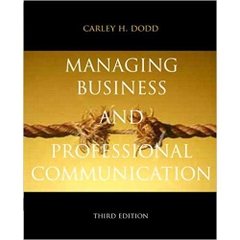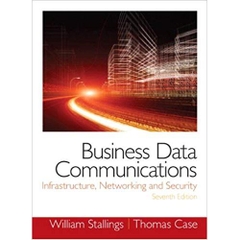-
-
-
Tổng tiền thanh toán:
-
-
Thông tin
-
Tìm sách theo yêu cầu
Three former CIA officers—among the world’s foremost authorities on recognizing deceptive behavior—share their proven techniques for uncovering a lie
Imagine how different your life would be if you could tell whether someone was lying or telling you the truth. Be it hiring a new employee, investing in a financial interest, speaking with your child about drugs, confronting your significant other about suspected infidelity, or even dating someone new, having the ability to unmask a lie can have far-reaching and even life-altering consequences.
As former CIA officers, Philip Houston, Michael Floyd, and Susan Carnicero are among the world’s best at recognizing deceptive behavior. Spy the Lie chronicles the captivating story of how they used a methodology Houston developed to detect deception in the counterterrorism and criminal investigation realms, and shows how these techniques can be applied in our daily lives.
Through fascinating anecdotes from their intelligence careers, the authors teach readers how to recognize deceptive behaviors, both verbal and nonverbal, that we all tend to display when we respond to questions untruthfully. For the first time, they share with the general public their methodology and their secrets to the art of asking questions that elicit the truth.
Spy the Lie is a game-changer. You may never read another book that has a more dramatic impact on your career, your relationships, or your future.
Product Details
- Paperback: 272 pages
- Publisher: St. Martin's Griffin; Reprint edition (July 16, 2013)
- Language: English
- ISBN-10: 1250029627
- ISBN-13: 978-1250029621
- Product Dimensions: 8.1 x 5.4 x 0.8 inches
- Shipping Weight: 10.4 ounces (View shipping rates and policies)
- Average Customer Review: 4.3 out of 5 stars See all reviews (180 customer reviews)
- Amazon Best Sellers Rank: #5,200 in Books (See Top 100 in Books)
- #12 in Books > Reference > Words, Language & Grammar > Communication
- #30 in Books > Health, Fitness & Dieting > Psychology & Counseling > Applied Psychology
- #34 in Books > Health, Fitness & Dieting > Psychology & Counseling > Personality
Editorial Reviews
Review
“This book is both entertaining and highly informative—and it’s the real deal. It gives readers genuine practical tools and tactics to use in all walks of life. I highly recommend it.”
—David J. Lieberman, Ph.D., New York Times bestselling author of Never Be Lied to Again
“For many years, Phil and his team have employed their skills to vet terrorist sources, catch spies, and protect the nation’s secrets. With this book, they have done something perhaps even more remarkable: Equip anyone to reliably detect deception. Consciously or not, we all judge others’ sincerity and truthfulness to protect ourselves. Most of us do it badly. This book will teach you to do it well.”
—Robert Grenier, chairman of ERG Partners, former director of the CIA Counter-Terrorism Center
"In this entertaining, instructive, and fascinating book, Phil, Michael, and Susan lay out an easy-to-follow process for detecting deception, with real-life stories that are the stuff of spy novels. I have used their model for years with phenomenal results.”
—Marisa R. Randazzo, Ph.D., managing partner at SIGMA Threat Management Associates, former chief research psychologist, U.S. Secret Service
“A terrific resource for anyone who would love to be able to tell when someone is lying. Having undergone their training, I’ve applied their methodology in some critical situations, and I’ve been blown away by its effectiveness. Spy the Lieis a captivating read with practical takeaway you’ll use every day.”
—John Miller, senior correspondent at CBS News, former associate deputy director of National Intelligence, and former assistant director for public affairs at the FBI
“When my detectives on the LAPD’s Counterterrorism Bureau and Robbery-Homicide Division took the course, we had veteran investigators tell us, ‘No one should ever be promoted to the rank of detective without taking this course,’ and ‘I now want to go back and re-interview every suspect I ever questioned.’ What this team has developed is truly unique, and anyone can learn to use it.”
—Bill Bratton, chairman of Kroll Associates, former LAPD chief, former NYPD and Boston Police Department police commissioner
About the Author
Philip Houston, a twenty-five-year veteran of the Central Intelligence Agency and a recipient of the Career Intelligence Medal, is a nationally recognized authority on deception detection, critical interviewing, and elicitation. He has conducted thousands of interviews and interrogations for the CIA and other federal agencies, and is credited with developing a detection of deception methodology currently employed throughout the U.S. intelligence and federal law enforcement communities.
Michael Floyd is a leading authority on interviewing, detection of deception, and elicitation in cases involving criminal activity, personnel screening, and national security issues. In a career spanning more than thirty-five years, he has served in both the CIA and the National Security Agency, and founded Advanced Polygraph Services, where he conducted high-profile interviews and interrogations for law enforcement agencies, law firms, and private industry.
Susan Carnicero, a former security officer with the CIA specializing in national security, employment, and criminal issues, is an eminent authority on interviewing, detection of deception, and elicitation. Trained as a forensic psychologist, she is the developer of a behavioral screening program used extensively in both the public and private sectors, and is currently involved in conducting high-level screening interviews within the U.S. government.
Don Tennant is a former National Security Agency analyst and business/technology journalist. As editor in chief of Computerworld, he won a variety of national journalism awards, including the Timothy White Award for Editorial Integrity and the Jesse H. Neal National Business Journalism Award from American Business Media.
Most Helpful Customer Reviews
101 of 109 people found the following review helpful
By John M. Ford TOP 1000 REVIEWER on July 20, 2012
Format: Kindle Edition Verified Purchase
13 Comments Was this review helpful to you? YesNoThis book's authors have many years of experience interviewing CIA assets, CIA employees, and a variety of ordinary people in non-CIA settings. Their specialty is in determining when someone is lying. And they are good at it. This skill in detecting deception has done a lot of good, helping their clients make better decisions about hiring the right new employee, trusting the right baby sitter, and prosecuting the person who really "did it." Sometimes the skills bring pain, making clear that the waiting doctor's politeness covers bad news or that a spouse isn't really joking about "her boyfriend." Still, it's better to know, isn't it?
Detecting deception isn't magic and it isn't infallible. But it is possible to become better at it than most of us are now. The book identifies several barriers to accurately detecting deception. We expect most people to tell the truth, we ask the wrong questions, and we look for the wrong "tells" in other people's behavior. And we try to watch everything they do instead of focusing on a small number of reliable indicators.
Such reliable indicators of deception include certain kinds of verbal hesitations and evasions as well as specific body movements of which a deceiver is largely unaware. Readers learn to ask questions that require different mental processing from guilty versus innocent suspects. One technique is to ask questions a good guy will answer with an immediate--and perhaps angry--"No!" while the bad guy will need to give a longer, more carefully worded response. We watch for deception indicators that begin in the first five seconds after a question. And we look for clusters of indicators rather than for single actions. There is more to it, of course, but this is the core methodology the book presents. It's good stuff.Read more ›
Detecting deception isn't magic and it isn't infallible. But it is possible to become better at it than most of us are now. The book identifies several barriers to accurately detecting deception. We expect most people to tell the truth, we ask the wrong questions, and we look for the wrong "tells" in other people's behavior. And we try to watch everything they do instead of focusing on a small number of reliable indicators.
Such reliable indicators of deception include certain kinds of verbal hesitations and evasions as well as specific body movements of which a deceiver is largely unaware. Readers learn to ask questions that require different mental processing from guilty versus innocent suspects. One technique is to ask questions a good guy will answer with an immediate--and perhaps angry--"No!" while the bad guy will need to give a longer, more carefully worded response. We watch for deception indicators that begin in the first five seconds after a question. And we look for clusters of indicators rather than for single actions. There is more to it, of course, but this is the core methodology the book presents. It's good stuff.Read more ›
81 of 90 people found the following review helpful
By Loyd E. Eskildson HALL OF FAME on July 18, 2012
Format: Hardcover
'Spy the Lie' provides insights from highly experienced practitioners of deception detection. Readers will not only learn useful perspectives on detecting deception, but to also be aware that lie detection is usually not easy and requires an open mind and strategy.
The primary obstacles that gets in the way of detecting deception are the belief that people will not lie to you, along with a bias that people are innocent until proven guilty and being uncomfortable judging others. The authors begin by suggesting one look for deceptive behavior within five seconds of a question, as well as for a cluster of such behaviors - a single 'suspicious' behavior may mean nothing.
Most of 'Spy the Lie' is taken up with specific suggestions on what to look for. For example, failure to understand a simple question is a deceptive behavior. Another - deceptive persons sometimes respond to an allegation with a truthful statement that casts him/her in a very favorable light such as giving Bibles to the homeless. Truthful responses tend to be direct and spontaneous, and the person is alert and composed. Unfortunately, untruthful persons can also show these behaviors - especially if prepared.
Failure to directly answer a question, directly respond with a denial, repeating the question, making general statements in response (eg. 'I would never do something like that'), non-answer statements, inconsistent statements, and going into attack mode are all indicators of untruthfulness. Other such indicators include procedural compliance, trying to butter up the questioner, involving religion (eg. 'I swear to God'), selective memory, and smiling in response questions about a heinous crime are other indicators.
The primary obstacles that gets in the way of detecting deception are the belief that people will not lie to you, along with a bias that people are innocent until proven guilty and being uncomfortable judging others. The authors begin by suggesting one look for deceptive behavior within five seconds of a question, as well as for a cluster of such behaviors - a single 'suspicious' behavior may mean nothing.
Most of 'Spy the Lie' is taken up with specific suggestions on what to look for. For example, failure to understand a simple question is a deceptive behavior. Another - deceptive persons sometimes respond to an allegation with a truthful statement that casts him/her in a very favorable light such as giving Bibles to the homeless. Truthful responses tend to be direct and spontaneous, and the person is alert and composed. Unfortunately, untruthful persons can also show these behaviors - especially if prepared.
Failure to directly answer a question, directly respond with a denial, repeating the question, making general statements in response (eg. 'I would never do something like that'), non-answer statements, inconsistent statements, and going into attack mode are all indicators of untruthfulness. Other such indicators include procedural compliance, trying to butter up the questioner, involving religion (eg. 'I swear to God'), selective memory, and smiling in response questions about a heinous crime are other indicators.
XEM THÊM TẠI AMAZON.COM
- Thông tin chi tiết
- Mục lục
- Đọc thử
- Đọc thử
- Đánh giá & bình luận của người mua
- Những cuốn sách cùng chủ đề hoặc có liên quan
Link: http://www.amazon.com/Spy-Lie-Former-Officers-Deception/dp/1250029627/
Tại web chỉ có một phần nhỏ các đầu sách đang có nên nếu cần tìm sách gì các bạn có thể liên hệ trực tiếp với Thư viện qua Mail, Zalo, Fanpage nhé
Đăng ký nhận tin qua email
Hãy đăng ký ngay hôm nay để nhận được những tin tức cập nhật mới nhất về sản phẩm và các chương trình giảm giá, khuyến mại của chúng tôi.












